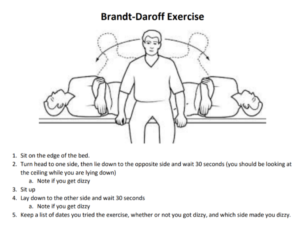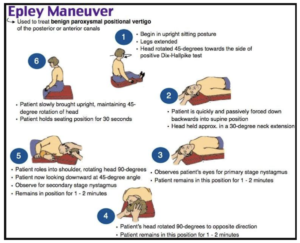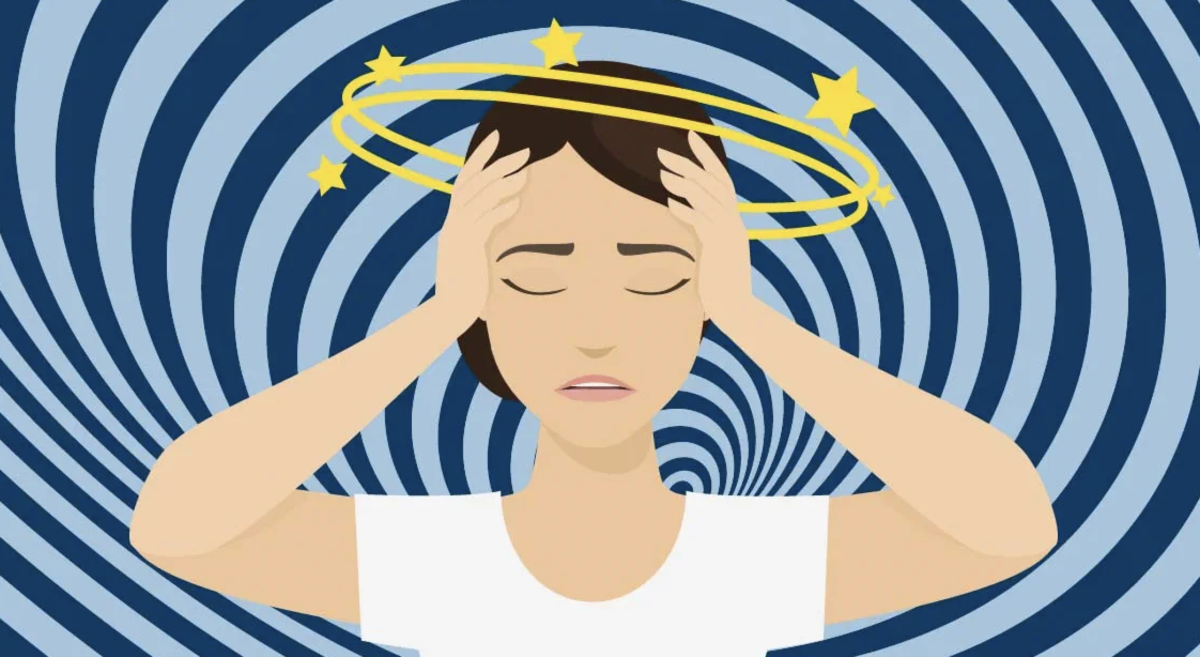Vertigo is a symptom rather than a condition itself. It is the sensation that you or the environment around you is moving or spinning. Attacks of vertigo can develop suddenly and last for a few seconds, or they may last much longer. Severe vertigo may be constant and last for several days, making normal life very difficult. Some other symptoms associated with vertigo may include loss of balance, feeling sick or becoming sick, and dizziness.
Vertigo is commonly caused by a problem with the way balance works in the inner ear, although it can also be caused by problems in certain parts of the brain. Causes of vertigo may include BPPV (benign paroxysmal positional vertigo) where certain head movements trigger vertigo, migraines are also known as severe headaches, labyrinthitis which is an inner ear infection and vestibular neuronitis which is inflammation of the vestibular nerve that runs into the inner ear and sends messages to the brain that helps control balance. Depending on the condition causing vertigo you may experience additional symptoms, such as a high temperature, ringing in the ears (tinnitus), and hearing loss.
How to treat vertigo?
Some causes of vertigo can improve over time without any treatment. However, some people have repeated episodes for many months or years. There are specific treatments for some types of vertigo, like the Epley maneuver to treat BPPV. Some medicines may also help in the early stages of vertigo. Many people will benefit from vestibular rehab, which is a series of exercises to help with dizziness and balance problems.
Depending on what is causing vertigo, there may be some things that you can do at home to help relieve your symptoms.
- Do simple exercises to correct symptoms like the Epley maneuver
- Sleep with your head slightly raised or on two or more pillows
- Get up slowly when getting out of bed and sit on the edge of the bed for a minute or some before standing
- Avoid bending down to pick up objects
- Avoid extending your neck; for example, while reaching up to a high self
- Move your head carefully and slowly during daily activities
- Do exercises that trigger your vertigo so your brain gets used to it and reduced the symptoms (Brandt Daroff exercises)
If you are experiencing any symptoms of vertigo or want more information, call our office to schedule an appointment.
https://www.nhsinform.scot/illnesses-and-conditions/ears-nose-and-throat/vertigo
https://www.vestibular.today/bppv-resources

*Can be used to help determine the side of dizziness if not told by a doctor or physical therapist
*You should repeat 3 times and complete 2-3x a day
*May cause dizziness but it is important to continue in order to feel any benefits

*This maneuver is performed once you know which side (right or left) the vertigo is coming from
*Key is to make sure your neck is extended and that you keep your eyes open
*Will cause some dizziness as well
